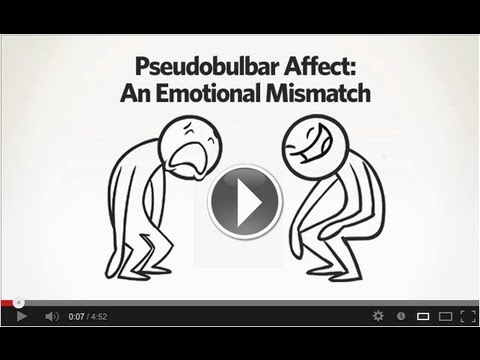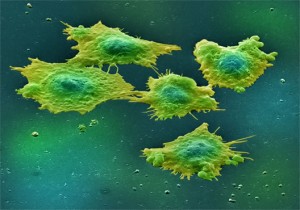
Health in an aging population
Nearly three quarters of British adults think they will have care needs in older age, however a fifth don’t know who will look after them if they do.
That’s according to new research released today which saw almost half say they don’t expect their family to look after them if they have care needs when they age.
The research reveals that under a quarter (24%) of the population feel older people are valued by society, illustrating the need to change perceptions of ageing and ensure older people are appreciated and treated as individuals.
The survey by Bupa of more than 2,000 people reveals that old age is a regular consideration, with 24% of respondents thinking about what life will be like in old age a few times a week – 17% think about it every day.
When it comes to paying for their care 40% believe they would have to fund care from their own savings, while only around a quarter say they think their care would be funded by the government, and almost 30% have no idea.
To find out more we have interviewed Professor Graham Stokes a leading dementia specialist.
Patient Talk – Can you tell us a bit more about the survey?
PROF STOKES Yes, the survey was looking at how people might consider life when their aged but also what they feel about their care needs and who might help them receive care when they’re in their later years.
Patient Talk What kind of method was used?
PROF STOKES Yes, we interviewed over 2000 people at the beginning of this year and inquired about their attitudes to aging and what they feel might happen when they are aged.
Patient Talk What were the main results?
PROF STOKES Well I think what leaps off the page, is that about three-quarters believe that they will have care needs when they’re in their old age. And they only think about maybe half will have their care needs met by their families, so that’s the negative side. But what also I think can be quite bleak is that less than a quarter feel that they will be valued by society, so that can be quite dispiriting.
Patient Talk How valid are the concerns expressed?
PROF STOKES I think they’re true. I think there’s a strong dose of realism in there. I think the first thing we have to say is that there’s still a misconception about old age. It’s often felt you’re 65, you retire, you get your pension… Well we all know that the retirement age is going to be more and more flexible and there will be people working into their late 60’s as a matter of norm, and probably within a generation or two, 65 as the starting point of old age will be completely meaningless. Were actually talking about people who are contemplating their future when they’re 75+, 80+, because on average now people should expect to live to around 80, and if you’re a woman, probably live well into your 80’s.
Patient Talk What options are actually open to older people in terms of care?
PROF STOKES I think what’s happening is that people are healthier for longer. They are surprising themselves. And so if you talk to people who are going through their early, mid-70s they will say they don’t feel old. But what does happen is that when you approach 80, I won’t say the body goes off the cliff, but you do see an acceleration of chronic diseases, all the common chronic diseases we associate with old age. It’s problems with blood pressure, its heart disease, its diabetes, its Parkinson’s, osteoporosis and for people aged over 55, dementia is their biggest worry. It can surprise people because they’ll think what about cancer, but all the research shows in the UK once you pass 55 dementia is the greatest concern and as a result, given you have that on the horizon, the question then is what do I do? And in years gone by, you would look to your family and I think the reality is that people don’t do that anymore. I think one, because they don’t wish to be a burden. Aged people aren’t strange creatures different from the rest of us, just an aged version of a younger person, and their personalities don’t change, their attitudes rarely change and no one wants to be seen as a burden whether it be young or old. There is this fear of being a burden. I think there is a greater appreciation that realistically people realise they may have many illnesses and ailments simultaneously, and that could just be excessive for any family to care for so I think that’s a real worry. But then the whole nature of family life has changed. We have smaller families so responsibility would fall on one or two children. We’re more mobile than ever before. We’re not all living around the corner. And so when we say they will be cared for by their family, it will probably be a daughter that lives about 100 miles away and so how will that work? People logically start to think about the NHS. Well the national health service pulled out of caring for aged people 25 years ago and so now it’s about care homes, and many people still have very old fashioned ideas about care homes, they don’t see them as communities, they don’t see them as communities that put the person first. No, it’s about your individuality, guiding not only your care but your quality of life so there’s a lot of old fashioned ideas around but a proportion of people will end up living in a care home.
Patient Talk How might they be funded?
PROF STOKES Well I still think there’s a lot of misunderstanding about caring for aged people. I think people believe that if you have got care needs that mean you can’t live by yourself or you can’t be looked after by your family, it’s like the NHS, the service is free, the point of delivery. Which isn’t the case, as I’ve said, long gone are the days when the NHS gave you living space in the hospitals and thank goodness that is so. In bygone years, whilst your care would be free, it would be in an open plan ward and in essence what your home would be is nothing more than the bed locker in the cubicle curtain, that would be it. Now people live in care settings, in care homes and you’ll be means tested. We define it not as chronic health care, but social care and soon as its defined as social care, your needs will be means tested against your income, your savings and the equity in your house.
Patient Talk Would it be true to say older people are less valued?
PROF STOKES I don’t think that is wrong. I think it’s the case that it’s a problem that goes back in time, that once you’re are no longer seen as being economically productive, not being able to contribute to your family, then you’re seen as more of a burden, and as you seem more of a burden, your devalued. And so as aged people start to talk, and it’s only about a quarter that feel aged people are valued by society and I think that’s very true and that is a shame because that neglects what people who are aged have contributed over decades and they still have so much more to contribute.
Patient Talk Have the baby boomers affected the perceptions of older people?
PROF STOKES I think we’re on the cusp if not a revolution, a transformation, in how we see aged people. In the UK the first baby boomer will reach 75 in 2021. If you wanted a guide as to when we might start talking about late middle age moving into early old age it’s around 75 because that’s when we start to see the rise in chronic diseases and disabilities. And from 2021 onwards, I think we’ll see a major change in how aged people wish to receive their services. For me it’s humbling, working with aged people today that they’re so grateful. They’re so grateful for not very much, they’re so stoical. That is not a baby boomer. The baby boomers are more self-centred, they’re more like consumers, the want quality, they want it now, the services shaped around them. There will be a far more demanding group of aging people, which I think quite rightly, so they’re not going to accept services as they are today, when they need their services when we go through the 2020’s.
Patient Talk What are the main medical conditions faced by older people?
PROF STOKES Yah, everybody dreads cancer, everybody dreads dementia. Most accurately, these are not the preserve, more commonly seen in old age. So the average age to be diagnosed with Alzheimer disease, the most common cause of dementia, is the late 70’s. So you have these major pathologies like Alzheimer’s disease, like the cancers, but then you have the host of chronic diseases such as diabetes, osteoporosis, unstable blood pressure, chronic heart diseases, Parkinson’s disease, breathing difficulties and they will limit the quality of your life. And I think when you talk to many middle age people about their health concerns, they’re not expecting the trauma and the tragedy, what they’re fearing is just a diminishing life quality as they lose their strength, their stamina, their speed because they’re becoming more frail.


